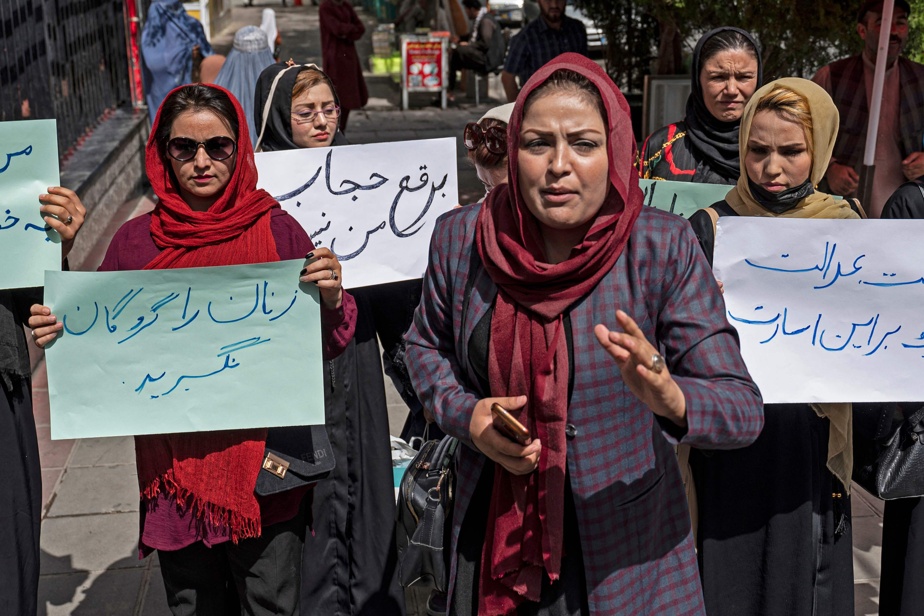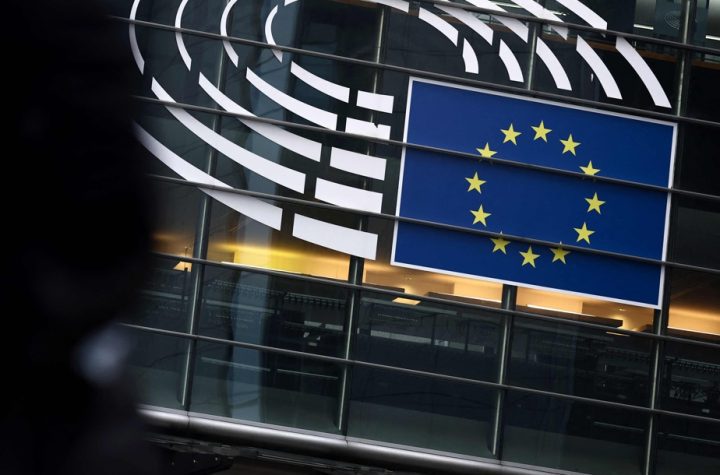
(Wangels) Foreign ministers of the G7 countries on Thursday condemned the Taliban’s increasingly serious restrictions on the freedom of Afghan women, the subject of a closed meeting of the UN Security Council in New York on the same day.
Posted at 4:52 pm yesterday.
“We condemn the growing regulatory measures that greatly reduce the capacity of half the population to participate in society,” the ministers who met this week in Germany in a free and equal manner said in a statement.
The Taliban have isolated themselves “a little more from the international community”, calling on G7 ministers – Germany, France, Italy, Canada, the United States, Japan and the United Kingdom – to “urgently raise themselves in a way”. ”Restrictions on girls and women.
These countries, among other things, refer to a decree issued last week requiring women to wear a full mask in public. In late March, the Taliban also closed access to high schools and colleges for girls, just hours after they reopened long ago.
Taliban officials in the western Afghan city of Herat have banned men and women from eating together in restaurants, including married people, official sources said on Thursday.
The European Union’s special envoy to Afghanistan, Thomas Nicholson, said the Taliban’s decision to exclude girls from secondary schools in Afghanistan “raised suspicions” about their determination to keep their promises and remained a major obstacle to their international recognition. This interview “raised suspicions […] On the credibility of their promises and on their credibility as a partner, ”he said on Thursday.
In New York, the UN Security Council held a closed meeting on the initiative of Norway, which will be followed by a unanimous statement in the coming days condemning the sanctions on women.
In late March, the council unanimously approved the first statement, expressing its “deep concern” over the loss of schooling for teenage girls and the reaffirmation of “the right to education for all Afghans, including girls.”
The “innocent” policy of the UN
Following the meeting, UK Ambassador Barbara Woodward denounced the Taliban’s desire to bring women out of “public life”.
“This is repression, this is wrong” and “it underscores the Taliban’s inability to pull Afghanistan out of the current economic, social and humanitarian crisis,” she told the media.
Ahead of the session, three permanent members of the Security Council also strongly criticized the sanctions imposed by the Taliban.
“Taliban policies continue to focus on the oppression of women and girls rather than the economic crisis,” said Norwegian Deputy Ambassador Trinh Heimerback.
Geraldine Byrne Nason, Irish ambassador to the UN, said the latest sanctions against women were “absolutely deplorable”. “It is now clear that the Taliban have no intention of respecting their commitments to the international community,” she said.
“The rights of women and girls should be at the center of our collective commitment,” said Alicia Guadalupe, deputy ambassador to Mexico.
In mid-March, the UN Security Council passed a resolution resuming the organization’s political mission in Afghanistan for a year, relying on a more moderate approach by the Taliban, which came to power in mid – August. Between 1996 and 2001.
According to an ambassador who spoke on condition of anonymity, the UN Secretariat’s approach to the Taliban was “somewhat naive”.








